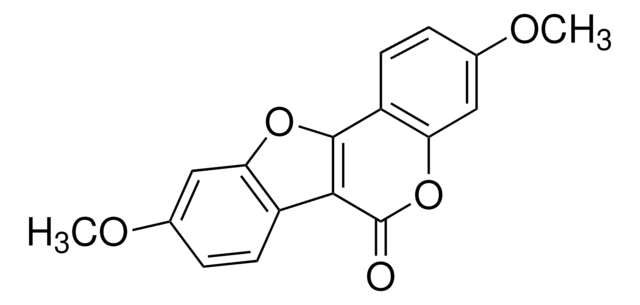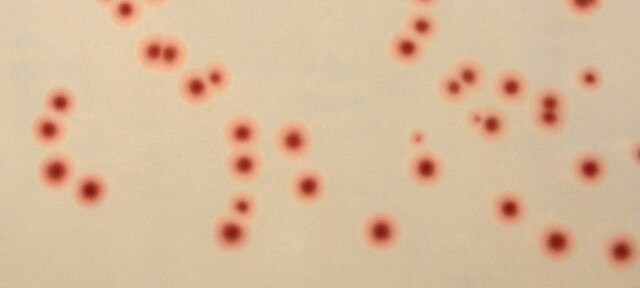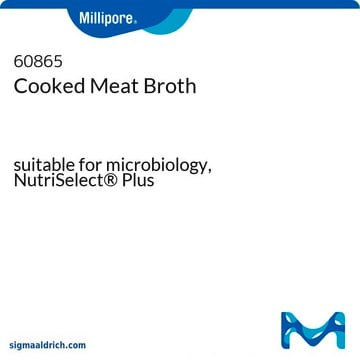B3051
Brucella broth base
suitable for microbiology, NutriSelect® Plus
About This Item
Recommended Products
sterility
non-sterile
Quality Level
form
powder
shelf life
limited shelf life, expiry date on the label
manufacturer/tradename
NutriSelect® Plus
technique(s)
microbiological culture: suitable
pH
7.0±0.2 (25 °C)
application(s)
clinical testing
environmental
food and beverages
sample preparation
microbiology
suitability
selective for Brucella spp.
selective for Campylobacter spp.
Application
Components
Casein Enzymic Hydrolysate 10.00
Peptic Digest of Animal Tissue 10.00
Yeast Extract 2.00
Dextrose 1.00
Sodium Chloride 5.00
Sodium bisulphite 0.10
Preparation Note
For isolation of the Campylobacter species add the rehydrated contents of one vial of Campylobacter Growth Supplement (Cat. No. C2847) and 5-7% defibrinated sheep blood to 500 ml of medium base. 500 ml of medium base. The Campylobacter Growth Supplement can also be made by mixing 125 mg sodium pyruvate (Cat. No. 15990), 125 mg sodium metabisulfite (Cat. No. 71928 )and 125 mg ferrous sulfate (Cat. No. 44970) in 2 ml of distilled water and filtering the solution through a sterile 0.4 mm filter to sterilize.
Footnote
The designations basic, plus, or prime are added to indicate the quality control level, from basic quality control to standard QC plus to prime for full regulatory compliance.
Legal Information
related product
Storage Class Code
11 - Combustible Solids
WGK
WGK 3
Personal Protective Equipment
Choose from one of the most recent versions:
Already Own This Product?
Find documentation for the products that you have recently purchased in the Document Library.
Customers Also Viewed
Articles
Campylobacter spp. are regarded as the leading cause of bacterial gastroenteritis in humans worldwide.
Campylobacter spp. are regarded as the leading cause of bacterial gastroenteritis in humans worldwide.
Campylobacter spp. are regarded as the leading cause of bacterial gastroenteritis in humans worldwide.
Campylobacter spp. are regarded as the leading cause of bacterial gastroenteritis in humans worldwide.
Related Content
Step-by-step protocol for generating apical-out human gut organoids for microbiome, ADME/Tox, viral and gastrointestinal related disease research. See the complete organoid culture protocol.
Our team of scientists has experience in all areas of research including Life Science, Material Science, Chemical Synthesis, Chromatography, Analytical and many others.
Contact Technical Service










